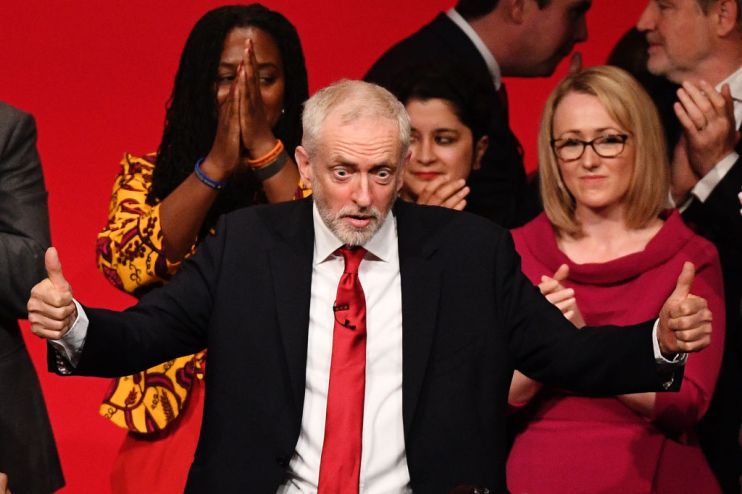If Jeremy Corbyn really cares about ‘the many’, he should rethink his aversion to markets

A common complaint over the past three years is that no one can talk about anything other than Brexit.
But that wasn’t true at the Labour party conference this week.
Unlike the Liberal Democrats, who barely gave way to any policy discussion beyond revoking Article 50, both the Labour leader and shadow chancellor confronted all the major public policy areas – including healthcare, housing, education, trade, and the economy more broadly. And all of them came with a huge platter of public spending commitments.
From abolishing tuition fees to offering free childcare, the giveaways kept coming, with no acknowledgement of the cost of such proposals, which will burden younger generations who inevitably have to pay off today’s bills down the road.
Of course, as a self-proclaimed fan of free enterprise and markets, I was deeply uncomfortable (though not terribly surprised) to hear of this spending bonanza, as well as the plans to increase state control in nearly every sector of the economy.
But listening to Jeremy Corbyn, I mostly felt perplexed. His negative view of markets and enterprise was overwhelmingly contradicting his stated desire to put “wealth and power in the hands of the many”.
The broad principle of free trade is almost universally agreed by economists to increase prosperity and raise living standards for all involved. If you want to empower people – not “the few”, but potentially millions at a time – creating choice and flexibility on an open market is the sure-fire way to succeed.
Corbyn also seemed to contradict himself by calling for high earners to pay more tax, while simultaneously attacking big pay packages. Perhaps he is unaware that the proportion of income tax paid by the top five per cent of earners is estimated to be over 50 per cent this year, up from just under 40 per cent 20 years ago.
These so-called “fat cats” pay for the bulk of public services. Flirtation with maximum wages would not only damage Britain’s economy, but also risk the services currently provided by the state, which Corbyn wants to expand.
And perhaps the biggest policy proposal announced by the shadow chancellor – to take the UK from a five-day work week down to four – overlooked the lowest-paid workers, who would be made most financially unstable from such a policy, and likely to need additional employment to top up their wages.
As IEA fellow Len Shackleton highlights in his book Working to Rule, people in highly-paid work (managers, directors, professional occupations) are much more likely to work over 48 hours a week than those in low-paid work (sales roles, customer service occupations) – 35 per cent of all full-time employees for the former camp, compared to seven per cent for the latter.
Despite framing the policy as a way to lighten the load for low-income workers, the only thing it is likely to do is lighten is their pay slip.
Labour isn’t the only party to promise a utopia – they’re all guilty to some degree of wild offers, with little talk of the trade-offs or consequences of so much spending. But to reject the role the market plays in improving lives is to overlook the economic lessons history has taught us over and over again.
Utopia will never be reached, but to come close, you’ll need market mechanisms and good common sense.
Main image credit: Getty